May 2025 marks the 250th anniversary of the start of the Second Continental Congress. South Carolina would initially send five delegates to this congress in Philadelphia that was famous for producing the Declaration of Independence.
By Rob Shenk
On May 10, 1775, delegates from twelve of the thirteen American colonies met at the Philadelphia State House (future Independence Hall) as part of a Second Continental Congress. The First Continental Congress held the previous year, had served to better knit together the colonies into a unified body. This Second Congress sought to build upon that growing unity and to find ways to counter Britain’s growing militancy against Massachusetts and the other colonies seeking redress for their concerns.
In January of 1775, the South Carolina Provincial Congress re-elected the five delegates who had represented the colony at the First Continental Congress. Henry Middleton, Christopher Gadsden, John Rutledge, Thomas Lynch, Sr., and Edward Rutledge all travelled north to attend the start of this new congress. While they had not always seen eye to eye during the contentious debates over the trade embargoes born of the earlier congress, each was committed to representing the important issues facing South Carolina.
As it would turn out, the Second Continental Congress would gain lasting fame as the body that declared independence from Great Britain and issued the Declaration of Independence on July 4, 1776. Of the five original delegates from South Carolina, only one of the five would add his signature to this important document – Edward Rutledge. Below we will explore why this initial group of delegates had only one signer.
Four of the five elected delegates in 1775 represented Carolina’s powerful and wealthy planter class, while the last, Christopher Gadsden, was the fiery champion of Charleston’s “mechanics” – merchants and manufacturers with voting rights. The oldest – Henry Middleton – was 58 years old, and the youngest, Edward Rutledge, was just 25.
Henry Middleton (58 years old)
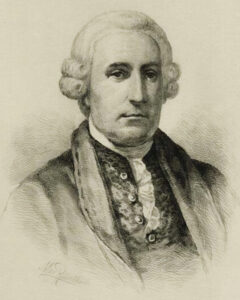
Henry Middleton was born in 1717 on his family’s plantation, The Oaks, outside of Charleston. Through inheritances, marriages, and acquisitions, Middleton came to own twenty plantations, totaling 50,000 acres and 800 slaves. Beginning in 1763, Middleton became a prominent critic of Britain’s colonial policies and a strong advocate for measures to counteract Parliament’s acts. And when Peyton Randolph needed to step away for health reasons, Henry Middleton was elected president of the First Continental Congress for its final five days.
As one of the more prominent delegates in attendance, Henry Middleton was encouraged to be a candidate to lead this new congress. Middleton declined this opportunity and would grow increasingly disenchanted over this body’s push for independence from Great Britain. Despite his reluctance to support the push for formal independence, Middleton did play an active role in helping to organize the Continental Army and voted to approve the 1775 invasion of Canada.
Unable to support the calls for independence, Henry Middleton resigned his position on February 16, 1776, and returned to South Carolina. His son, Arthur Middleton, would be elected in 1776 to become a new delegate to the Second Continental Congress and he became one of South Carolina’s four signers later that year.
Christopher Gadsden (51 years old)
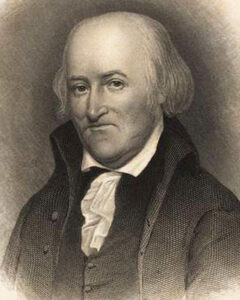
Christopher Gadsden was born in Charleston in 1724. Gadsden was one of the most successful merchants (or Mechanik) in Charleston and owned four different stores, several merchant ships, two rice plantations, and a large wharf on the Cooper River. Gadsden not only possessed great knowledge about trade subjects, but also had served in the Royal Navy and thus had great insights into Britain’s naval power.
Gadsden became a leading voice against Britain’s colonial policies. In 1765, Gadsden represented South Carolina at the Stamp Act Congress in New York and was a delegate at the First Continental Congress in Philadelphia. Few could match his fiery determination to fight for America’s rights.
As one of South Carolina’s leading radicals, Gadsden was one of the first delegates to advocate for independence and for establishing foreign alliances. Gadsden proved to be a powerful voice in favor of military preparedness, free trade, and for removing any specific state-specific advantages in the commercial realm, Gadsden was also appointed to the Marine Committee and became a strong advocate for the creation of an American navy. His outspoken views on why an American naval force was needed was seen as too provocative and impracticable by many other delegates, including the Rutledges.
Recalled by the South Carolina Provincial Congress in January of 1776 so that he could take part in Charleston’s efforts to bolster its defenses against a likely British invasion, Gadsden left Philadelphia and hurried home. While in Charleston, Gadsden assumed command of the 1st South Carolina Regiment of which he was that leading regiment’s colonel. One other item Gadsden returned with was a distinctive yellow flag with a coiled rattlesnake on it. Under the snake were the words, “Don’t Tread on Me.” Now known as the “Gadsden Flag,” this flag was intended to be the American’s navy’s naval ensign. After the British capture of Charleston in May 1780, Gadsden was initially paroled to his Charleston home, before being forcibly deported to St. Augustine, Florida by the British, where he spent 42 weeks in solitary confinement.
Thomas Lynch, Sr. (48 years old)
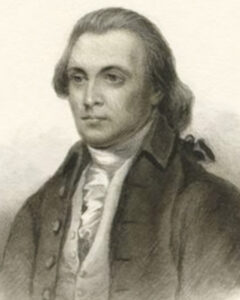
Thomas Lynch Sr. was born in St. James Santee Parish around 1727 and inherited several large plantations along the Santee River from his father. Lynch opposed British attempts to limit the colony’s autonomy and was a delegate to the Stamp Act Congress in 1765 and the First Continental Congress in 1774.
Like several other of South Carolina’s delegates, Lynch clung to a tenuous position – rejecting independence, while supporting actions that would force Britain to accede to America’s demands. Thomas Lynch Sr. approved of Richard Henry Lee’s May 16, 1775 proposal for creating a Continental Army. And when the details of a British peace mission reached Philadelphia, Lynch declared that the proposal presented America with a most satisfactory outcome.
In early 1776, Thomas Lynch suffered a severe stroke and was unable to continue as an active delegate. On March 23, 1776, the South Carolina Provincial Congress elected his son, Thomas Lynch Jr., as a sixth delegate to the Second Continental Congress. It was their hope that the son could attend to his father’s health needs while also representing South Carolina at the Congress.
After independence was declared a space was left open on the Declaration of Independence for Thomas Lynch Sr. to add his signature, but he remained too ill for even that simple act. His son, however, was able to sign and Thomas Lynch Jr. became the second youngest person to sign the Declaration of Independence in 1776.
Both Lynches departed Philadelphia in December of 1776, but enroute Thomas Sr. suffered a second devastating stroke and died in Annapolis, Maryland on December 19, 1776.
John Rutledge (36 years old)
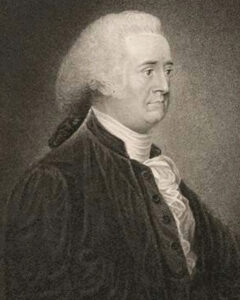
Born in Charleston in 1739, John Rutledge became one of South Carolina’s most active and prominent political figures. Rutledge was elected to the 1765 Stamp Act Congress which declared that “no taxes be imposed on [the colonists] but with their own consent.” He was a delegate at the First Continental Congress and was later elected by the South Carolina Provincial Congress to be a delegate to the Second Continental Congress.
While in Philadelphia, Rutledge voiced his approval for the creation of a new Continental Army, but when the debate shifted to declaring independence, Rutledge proved to be far more conservative than other delegates. According to other delegates in attendance, Rutledge spoke “long and well” about seeking only a “Restoration of rights and putting of us on our old footing.” In May and June of 1775, war did not imply independence in Rutledge’s mind.
When it came to trade and Parliament’s rights in regulating America’s commerce, Rutledge proved to be an outspoken critic of Lord North and his ultimatums. He was also a strong advocate for the trade embargoes instituted during the previous congress.
John Rutledge and Henry Middleton both returned to South Carolina in November of 1775. They presented the resolution formed at the Second Continental Congress urging each colony to institute its own representative government. In February of 1776, John Rutledge helped design South Carolina’s constitution and worked to gain its approval in March. He was also subsequently elected as South Carolina’s first president in March of 1776.
Despite his great interest in creating a separate and independent government for South Carolina, John Rutledge remained steadfast against any declaration of independence from Great Britain. When Christopher Gadsden advocated for independence within the Provincial Congress, Rutledge declared that a treasonable act and that he would “ride post, by day and night to Philadelphia, in order to assist, in re-uniting Great Britain and America.”
Despite his historic opposition to independence, when the text of the Declaration of Independence reached Charleston, President John Rutledge approved of a public reading of the document to a large and ecstatic crowd. In time he came to see independence as a “unavoidable necessity” while he dedicated himself to the defense of South Carolina and the new nation during the Revolutionary War.
Edward Rutledge (25 years old)
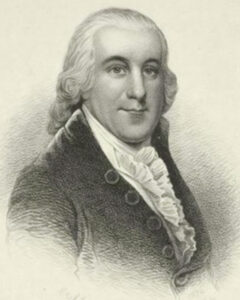
Born in Charleston in 1749, Edward Rutledge was the youngest of South Carolina’s delegates to the Second Continental Congress. Like his older brother, Edward trained to be a lawyer. He studied law at the Inns of Court in London and was admitted to the English bar in 1772. Having served in the First Continental Congress, the South Carolina Provincial Congress reelected him to the Second Continental Congress as well. At only 25 years of age, Rutledge was the youngest of all the delegates in Philadelphia. Given his young age, many were curious about Edward’s stance on key issues. Was he more moderate like his older brother, or more radical like other younger delegates? Edward, in the end, fancied himself a bridge between these two parties.
During the proceedings in Philadelphia, Edward was an outspoken advocate for opening American ports to foreign trade and for a more formal confederation of the colonies.
Similar to his brother John, Edward Rutledge first resisted the notion of formal independence from Great Britain. Edward at first believed that the American colonies were not ready to secure their independence and would make America “ridiculous in the eyes of foreign powers.” But over time, Edward’s position on this important topic softened. Rutledge also received from South Carolina’s Provincial Congress in May of 1776, a set of instructions that authorized the delegates to agree with any provision that the majority of Congress believed to be “necessary, for the defense, security, or welfare of this colony in particular, and of America in general.” This instruction to be agreeable with the majority, coupled with the burning of Falmouth, Maine, and the news that King George III would not entertain any petition for reconciliation pushed Edward Rutledge further towards the camp supporting the call for independence.
On July 2, 1776, Edward Rutledge would formally vote to support a Declaration of Independence and on August 2, 1776, he affixed his name to the document – the only one of the original South Carolina delegates to do so. In reflecting on this choice for independence, Edward would write that “we must bid adieu…to Ease, and Happiness. We launch as it were into an unknown Ocean.”
Edward Rutledge was not reelected as a delegate in January 1777 and returned to Charleston shortly thereafter. Rutledge served as a captain in the Charles Town Battalion of Artillery and fought at the Battle of Beaufort in 1779. The younger Rutledge would return as a delegate in late 1779 but returned quicky once it was learned that the British were advancing on Charleston. Captured after the surrender of Charleston in May of 1780, Rutledge was sent to a prison in St. Augustine, Florida, with the other Charlestonian signers of the Declaration of Independence.
Which South Carolinians Signed the Declaration of Independence?
The Declaration of Independence would be signed by four South Carolinians after its approval in July of 1776. As stated above, only one of the original five delegates would remain in Philadelphia to sign this document. Joining Edward Rutledge were three new delegates who would affix their names to this famous document:
- Thomas Lynch Jr. – elected as a sixth delegate, Lynch tended to his ill father while also voting with the other delegates for independence.
- Arthur Middleton – Elected as a replacement for his father after he resigned his position.
- Thomas Heyward Jr. – Elected as a replacement for John Rutledge, Heyward Jr. would be one of nine delegates who both signed the Declaration of Independence and actively fought in the Revolutionary War.

Thomas Lynch Jr. would perish at sea during a voyage to France. Arthur Middleton, Thomas Heyward Jr. and Edward Rutledge would all be captured in Charleston in May of 1780 and deported to St. Augustine, Florida by the British forces.
__________________________
Sources
- The Rutledges, the Continental Congress, and Independence by James Haw, The South Carolina Historical Magazine, October 1993. Published by the South Carolina Historical Society
- Delegates to the Continental Congress from South Carolina, 1774-1789 by A.S. Salley, Jr.
- American Scripture: Making the Declaration of Independence by Pauline Maier
- Christopher Gadsden and the American Revolution by E. Stanley Godbold, Jr. and Robert H. Woody.
- Christopher Gadsden, Castillo de San Marcos National Monument, Fort Sumter and Fort Moultrie National Historical Park. https://www.nps.gov/people/christopher-gadsden.htm
- John Rutledge, Castillo de San Marcos National Monument, Fort Sumter and Fort Moultrie National Historical Park. https://www.nps.gov/people/john-rutledge.htm
- Middleton, Henry (1717-1784), South Carolina Encyclopedia. https://www.scencyclopedia.org/sce/entries/middleton-henry-2/
- Edward Rutledge, Fort Sumter and Fort Moultrie National Historical Park, Independence National Historical Park. https://www.nps.gov/people/edward-rutledge.htm
- Thomas Lynch, Jr., Carolana.com. https://www.carolana.com/SC/Revolution/sc_signers_thomas_lynch.html
- The Writings of Christopher Gadsden by Richard Walsh
_________________________________
Rob Shenk is a board member of SC250 Charleston, a local non-profit established to support commemorative events and educational programs in the Charleston area, and is the Chief Content Officer for Wide Awake Films, a leading producer of history-centered films and museum interactives. Rob previously held senior executive positions at George Washington’s Mount Vernon and the American Battlefield Trust.
